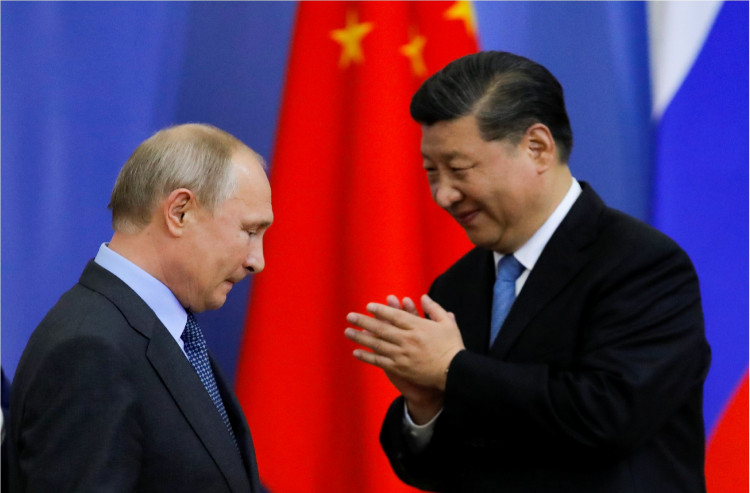Russian President Vladimir Putin and Chinese President Xi Jinping spoke in a phone call on Monday, emphasizing their countries' deepening strategic partnership amid a dramatic shift in U.S. foreign policy. The conversation marked their first direct communication since President Donald Trump initiated high-level talks with Moscow over a potential peace deal in Ukraine, a move that has raised concerns in Kyiv and among European allies.
"History and reality show that China and Russia are good neighbors that cannot be moved away, and true friends who share weal and woe," Xi said, according to China's state news agency Xinhua. He stressed that their relationship is long-term and unaffected by "any third party," an apparent reference to Washington's evolving stance on Russia.
The Kremlin described the call as "warm and friendly," underscoring the importance of the Russia-China alliance as a stabilizing force in global politics. Putin updated Xi on his recent discussions with U.S. officials and reiterated that Moscow remains open to diplomatic resolutions regarding Ukraine. "The Chinese side expressed support for the dialogue that has begun between Russia and the United States, as well as readiness to assist in finding ways to peacefully resolve the Ukrainian conflict," the Kremlin readout stated.
The conversation came as Ukraine marked the third anniversary of Russia's full-scale invasion, facing mounting pressure on the battlefield. Trump's administration has signaled potential concessions to Moscow, including recognition of Russian territorial gains and limiting U.S. military aid to Kyiv. The abrupt policy shift has frustrated European leaders, who were excluded from recent U.S.-Russia negotiations in Saudi Arabia.
Trump on Monday suggested that Putin was open to European involvement in peacekeeping efforts, claiming that the Russian leader would "accept it" if a deal were reached. Putin later stated on Russian television that "not only the Europeans but also other countries have the right" to participate in talks but noted that Europe had previously refused to engage with Moscow.
In addition to the war in Ukraine, the leaders discussed economic ties. Xi and Putin reaffirmed their commitment to expanding trade and technological cooperation, despite U.S. efforts to curb China's support for Russia's defense sector. Beijing has faced accusations from NATO of supplying Russia with dual-use goods that bolster its military capabilities, though Chinese officials insist that all trade remains within legal parameters.
The shifting geopolitical landscape has prompted speculation over whether Washington's overtures to Moscow could drive a wedge between Russia and China. Trump's national security team has floated the idea of isolating Russia from its traditional allies, including Iran and North Korea, while also seeking potential economic cooperation with Moscow.
Putin said on Monday that he is open to Trump's proposal for drastic reductions in military spending. "The idea seems like a good one to me," Putin said, suggesting that the U.S. and Russia could each cut defense budgets by 50%, with China potentially joining at a later stage.
Beijing has been cautious in its response to these developments. Chinese Foreign Minister Wang Yi recently stated that while China welcomes U.S.-Russia peace talks, all relevant stakeholders should be included in discussions. However, at a G20 meeting in Johannesburg, Wang omitted any mention of European involvement, signaling a possible shift in China's approach to the negotiations.






